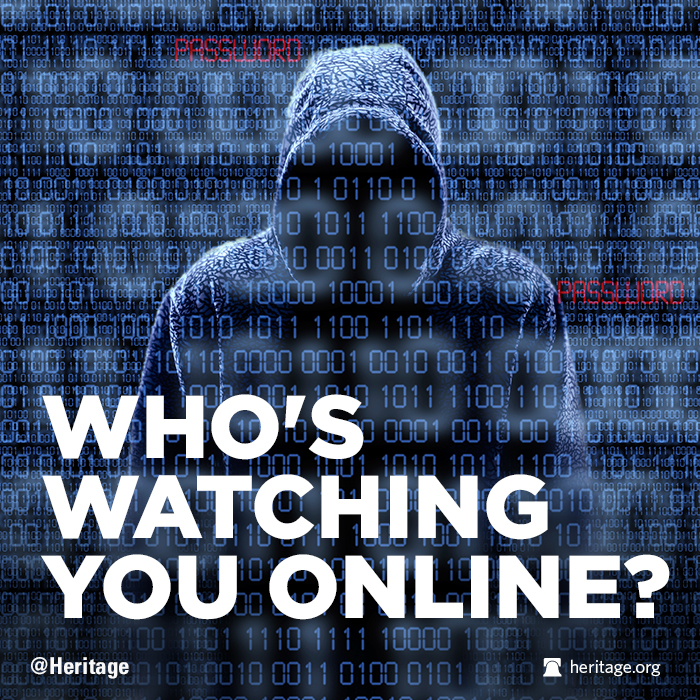Who's Watching You Online?
by Amy Payne, Heritage Foundation, March 10, 2014
In recent years, the world has watched as Twitter and Facebook made political uprisings possible. In countries where dissidents previously had trouble making their voices heard and connecting with one another, these tools changed history.

On the flipside, however, everyone from terrorists to foreign intelligence agencies rushed into the open space online.
“Exploiting social networks for military and intelligence purposes is a global game,” explains Heritage’s E.W. Richardson Fellow, James Jay Carafano. “China, for example, has stepped up its efforts to recruit Americans studying abroad as future ‘sleeper’ agents. The top tools they use to evaluate potential recruits? Facebook, Twitter, LinkedIn and reunion.com.”
Yesterday, Carafano spoke at the South by Southwest Interactive (SXSWi) Festival in Austin, Texas. Carafano, author of Wiki at War: Conflict in a Socially Networked World, joined the technology and ideas conference to speak on the impact of social networking on today’s warfare.
It may come as a surprise to many of us that, for example, not all email spam is harmless. Carafano warns:
Foreign intelligence services also use social media to try to get inside our computers. That malware your officemate downloaded by clicking on the email offering “50 percent off pizza”? It might just as easily have come from a hacker working for the Chinese military as from a Russian cyber-criminal or some punk cyber-dude in California.
And what is the U.S. government doing to protect us?
>>> Watch Carafano and Representative Darrell Issa (R-CA) discuss the importance of cybersecurity
It’s a tricky balance, because cybersecurity legislation lags notoriously behind the times. By the time Congress could agree on a bill, its guidelines would already be outdated. Technology simply moves too quickly. That means the most efficient cybersecurity initiatives are public-private partnerships.
“Government is linear and social networks are non-linear,” Carafano told the South by Southwest audience. “That’s why we need a generation of leaders who can operate comfortably in the linear and nonlinear worlds.”
After all, America’s security forces have a lot of catching up to do when the Army is still looking for “capabilities that are dwarfed by what outfits like Google, Amazon and Facebook use daily to analyze and understand the behavior of their customers online.”
Check out Heritage’s recommendations for cybersecurity here.
Read the Morning Bell and more en español every day at Heritage Libertad.
Quick Hits: